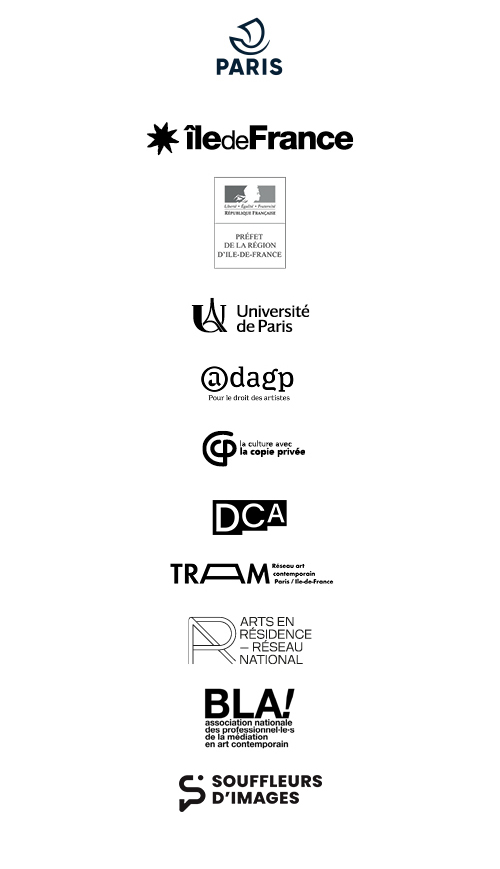Agenda
En ce moment :
« Jean-Noël Herlin, un junk mail junkie »
20.01-20.04.24
À venir :
Vendredi 19 avril, de 18h à 20h30 : Écrire avec des moufles : atelier d’écriture sur et autour, pour, avec, sous et à côté de l’art
Samedi 20 avril, de 17h à 18h30 : Lancement de Le Monde en situation. La révolte sensible de l’Internationale situationniste de Vanessa Theodoropoulou (ed. Les presses du réel, 2024), en présence de l’autrice et de Fanny Schulmann
Prochaine exposition :
« SOFARSOGOOD » de Sylvie Fanchon, une double exposition à Bétonsalon et à Pauline Perplexe, Arcueil
04.05-13.07.24 (Bétonsalon)
04.05-26.05.24 (Pauline Perplexe)
Vendredi 3 mai, de 16h à 21h : Ouverture de l’exposition à Bétonsalon
Samedi 4 mai, de 18h à 22h : Ouverture de l’exposition à Pauline Perplexe
Appel à candidature :
Bourse ADAGP & Bétonsalon 2024 : Bourse de recherche et de production. Candidatures à transmettre à info@betonsalon.net avant le lundi 22 avril, 14h
+++
Instagram
Facebook
X
LinkedIn
YouTube
+++
Pour recevoir la programmation, inscrivez-vous à la newsletter.
